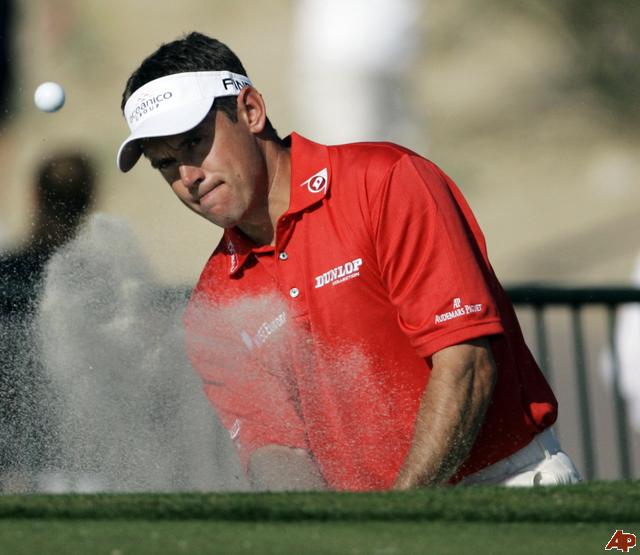The development of golf in Bermuda is an interesting story, centred around the early development of the tourism trade, famous people and gorgeous coastal golf courses which are extremely challenging. In addition to the hundreds of thousands of golf enthusiast who have visited us from overseas, among them were former British Ryder Cup Captain the late Dai Rees and Archie Compston the British Ryder Cup player who became the Mid Ocean Club Professional. Ironically, both were runner-ups in the British Open – Rees three times.
Both Archie Compston (1893 – 1962) and Dai Rees CBE (1913 – 1983) were exceptional professional golfers who were also great wind players and each of them positively influenced the development of the golf game in my beloved Bermuda.
The island of Bermuda is a British Overseas Territory – steeped in history and traditional charm that attracted many great players, but through the presence of these two great players many islanders and our visitors learned the fundamentals of the game, especially the art of the wind shot and the importance of practice, being focused, being positive and confident at all cost.
With London only a six hour flight to paradise to enjoy sun, fun and golf – Bermuda became a popular place for a winter respite. It clearly helped our tourism develop aided by the popularity of the game of golf together with the popularity and stature of these two great British Ryder Cup stars and their American counterparts who also played golf in Bermuda.
The great Archie Compton who later became Mid Ocean Club Professional was also regarded as a great teacher of the game – stories about him are legendary and entertaining. One particular story was how Archie – of towering stature – would force his students to hit down and through the ball ‘by stomping on the ball they were about to play with his foot during a coaching session’. Archie Compston’s tenure was a greatly cherished and respected association that not only shaped the golf of many Bermudian golfers of that era but also the caddies who became outstanding players as well.
In contrast, Dai Rees who made Bermuda his winter retreat and also made many friends as he willingly shared his knowledge and love for the game of golf. As a beneficiary of that knowledge, I can attest to how his ability to negotiate the wind, remain a focused and positive golfer was transported across the ocean to keen observers in Bermuda who cherished the opportunity to rub shoulders with and learn the skills from such a great player on a personal level. Rees who finished second in three Opens once said to me, “…… three reasons I never won The Open – Hogan (Ben), Thompson (Peter) and Palmer (Arnold)”
Through the coaching of Dai Rees, I came to better appreciate that ball control (when hitting a wind shot) is mainly achieved through the proper application of the fundamentals – especially ball positioning, proper forward weight transfer by the hips and the role of the left hand at impact – where a flat left wrist at impact (for a right-handed golfer) leads and pulls through on an arc toward the intended target line as the forward moving hips clear or turn.
In Bermuda, unpredictable wind direction and gusty velocity both make hitting accurate shots through the wind a daunting task. To be a good wind player requires controlling the ball flight and the speed the ball travels through the air.
Negotiating the wind is tough enough on its own but when the target is the dynamic Par 3 16th Hole on the cliffs at Port Royal Golf Course or the spectacular Par 4 5th hole at Mid Ocean Club over Mangrove Lake – made famous by the legendary ‘Babe’ Ruth’s attempts to drive onto the green – ultimately the challenge presented by the combination of a difficult golf hole and the wind is significantly elevated.
Many experienced discerning golfers have learned to focus on the shot at hand and not get sidetracked by the beauty often accompanied with seaside golf holes. As is the case in Bermuda, the tranquil setting and picture perfect scenery can serve as an undetectable distraction and reduce the required attention to detail needed by the golfer.
To properly negotiate the wind the golfer needs to assess the wind direction and then calculate the distance that the ball must travel after the player has adjusted for the influence by the wind.
• Wind Direction – determine the wind direction by throwing a few clippings of grass in the air and compare it against the direction of the flag stick – sometimes the two directions are at variance due to swirling wind caused by hills and valleys.
• Cross Winds – be most cautious when playing in a cross wind, as a wind travelling at any angle across the line of a hole can be treacherous and carry a careless shot farther away from the target and towards trouble and/or out of bounds.
• Wind Velocity – learn how to determine the wind velocity through constant practice and play in as many adverse weather conditions that present themselves. Increased experiences in varying wind speeds heighten the players ability to determine the actual wind speed at hand when it matters most during a round. The more experiences a player logs in, acts as an instinctive personal data base that allows the golfer to intuitively compare the distance at hand based on past experiences. It also helps for the golfer to practice the distance they can hit each club on a level area without the wind -by learning the distance that they can hit each club – allows the golfer to develop the ability to accurately calculate distance influenced by the wind.
Practice – as it requires repeated mentioning, consistent practice of proper techniques and methods are essential to instill a confidence that enables you the golfer to ‘Just Do It’ – borrowing a popular brand slogan from Nike.
There is no simple way to acquire the proper skills to hit controlled golf shots consistently – it is also my duty to urge golfers of all levels to seek a qualified PGA Golf Professional and hone their golf skills through proper instruction – and then practice, practice, practice.
We invite golfers to visit Bermuda and put their golf skills to the test, particularly as our coastal golf courses lend themselves favourably to the accomplished golfer who frequents links golf on the great links golf courses of Great Britain and in Ireland.
Visit Port Royal Golf for more information about golf in Bermuda and Kim Swan.




One Response